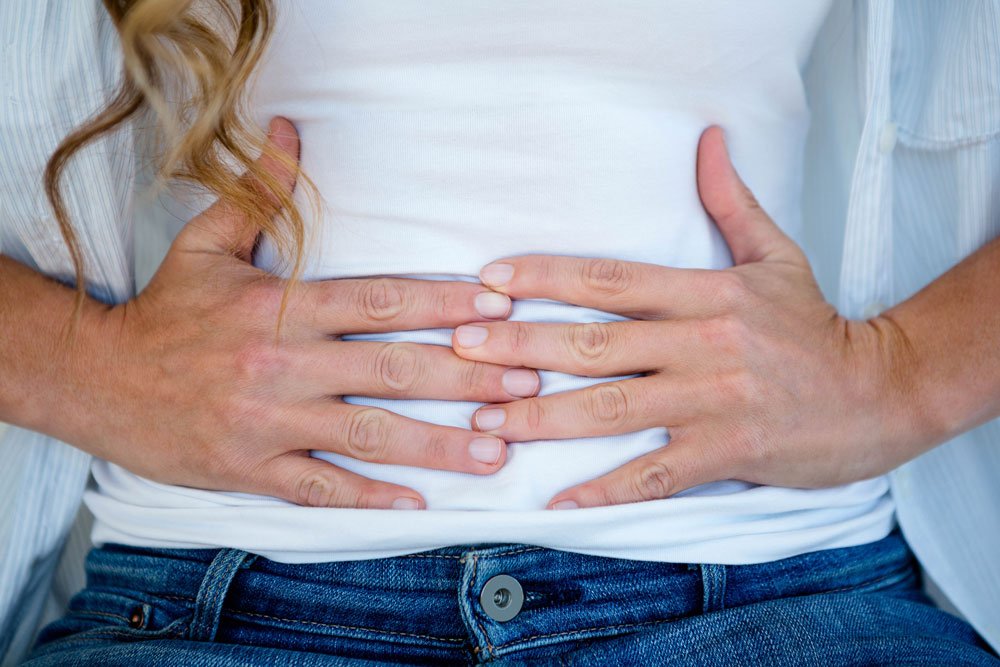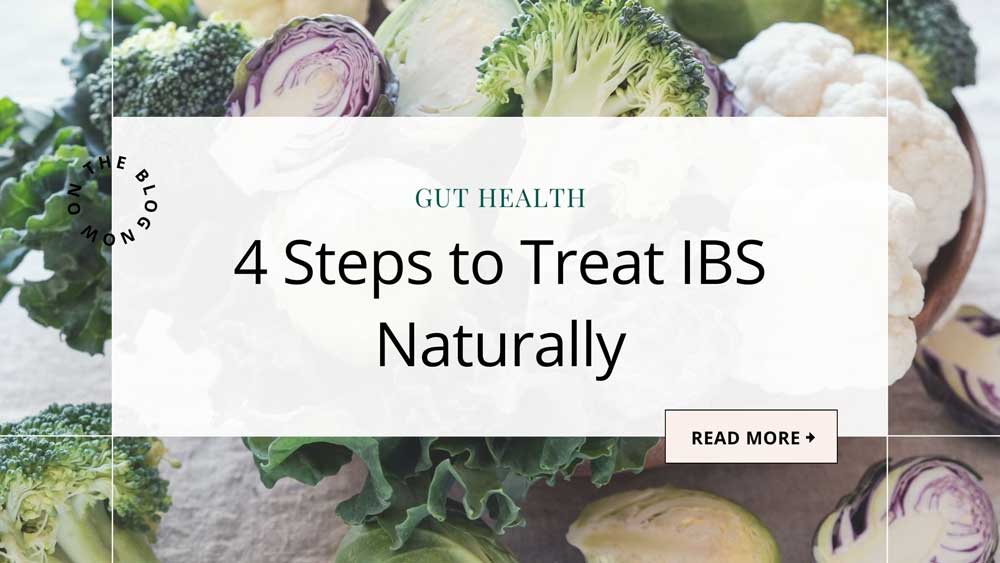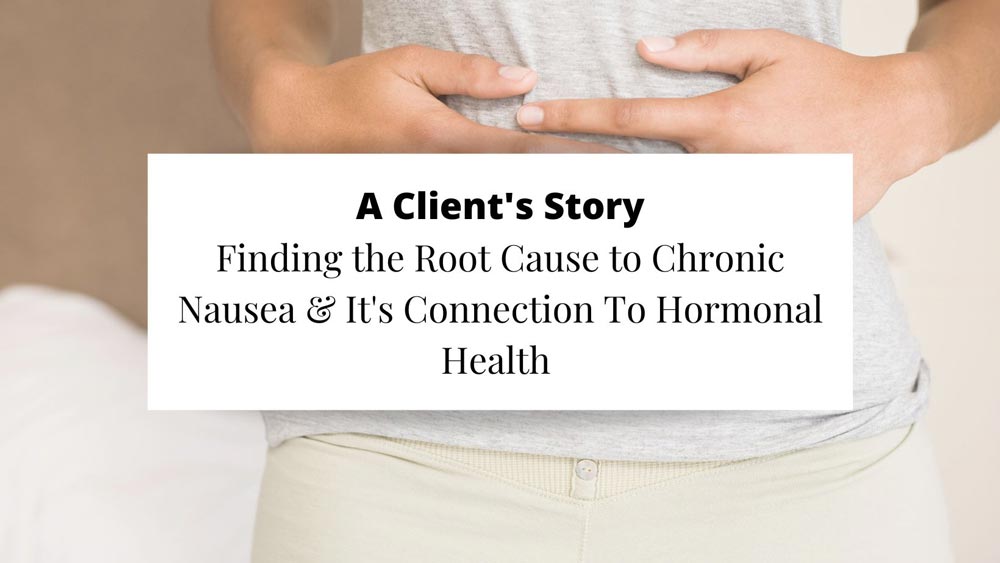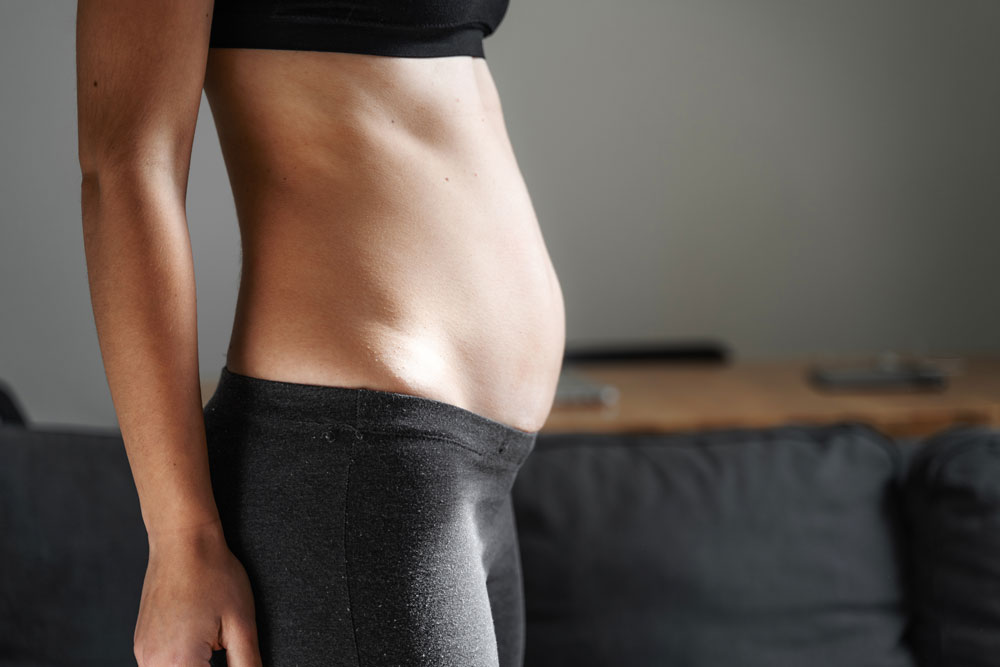Do you experience bloating all the time?
You may be experiencing severe bloating, to the point that you feel and look pregnant.
Bloating all the time is one of the most common ailments that I see in women with digestive concerns and I’m here to tell you it’s not something that you have to live with.
If there is no underlying medical condition, severe bloating occurs when there is a high level of intestinal gas.
This happens when there is a breakdown and fermentation of carbohydrates and fibre, leading to the production of gas in the small intestine or large intestine.
This gas may not be released effectively, causing it to build up and get trapped within the digestive system, causing severe bloating.
You may experience other symptoms associated with bloating, from reflux, to burping, digestive pain, cramping, constipation or diarrhoea.
When these symptoms are present without any other explanation after an endoscopy or a colonoscopy, it will often be diagnosed as Irritable Bowel Syndrome (IBS). At this stage you may be told you have to simply live with it or you may be provided with low FODMAP dietary guidelines without any further explanation.
In this article I aim to provide you with more answers around why you are feeling bloated all the time and how treating the underlying cause is imperative for long term resolution of severe bloating.
What Causes Bloating all the Time?
If you’ve been experiencing bloating for quite some time, there may be a few underlying causes that need to be addressed to overcome your bloat for good.
Below I have listed the 5 most common causes to bloating that I see in my clients with digestive issues.
1. Small intestinal bacterial overgrowth
The number one cause to bloating that I always take into consideration during a Naturopathic consultation is small intestinal bacterial overgrowth, also known as SIBO.
When there is an overgrowth of bacteria in the small intestine, these bacteria ferment carbohydrates and fibre producing gas such as hydrogen, methane or hydrogen sulfide. The higher the levels of bad bacteria in the small intestine, the higher the level of gas which is produced leading to significant bloating.
The type of bacteria that is present in the digestive system will determine what type of gas is being produced which can also be connected with a number of other symptoms such as diarrhoea, constipation, bladder pain, joint/musculoskeletal pain, and even rosacea (acne type rash on the cheeks).
The number one cause to bloating is small intestinal bacterial overgrowth (SIBO) which are bacteria that ferment carbohydrates and fibre, producing excess levels of gas leading to a bloated belly.
2. Low stomach acid
Without adequate stomach acid, your small intestine will end up with undigested protein molecules which will putrefy and ferment causing a very bloated and unhappy digestive system.
Adequate levels of hydrochloric acid, also known as stomach acid is important to kickstart digestion, initiating the break down of protein, carbohydrates and fat into smaller molecules.
If you have low stomach acid, bloating or gas production will occur usually with in 30 minutes after eating, making you feel very uncomfortable every time you eat.
Low stomach acid causes poor digestion which will cause gas and bloating with in 30 minutes upon eating.
3. Constipation
Did you know that your colonic transit time should be with in 12-24 hours? That means the food that you eat should move through your digestive system and come out the other end with in that time frame.
If it takes longer than 24 hours to move your bowels after eating, then you are considered constipated. Moving your bowels at least once a day is essential for a healthier digestive system and for a flatter belly.
Constipation is a big contributing factor to feeling bloated and needs to be addressed to ease your bloat.
If you aren’t moving your bowels every 12-24 hours, it’s a sign that you are constipated which is a big cause to your bloating.
4. Food Intolerances to Wheat or Dairy
Do you ever notice that when you eat wheat in the form of bread or pasta you experience a bloating, heavy and full feeling? You may also experience this after a glass of milk or a bowl of ice-cream.
Both wheat and dairy are two of the most common food intolerances that can lead to bloating soon after eating them.
Often the lactose found in dairy and the oligosaccharides found in wheat can cause bloating soon after eating them.
Other symptoms associated with the food intolerances include:
- Stomach cramping
- Diarrhoea
- Constipation
- Burping
Eliminating wheat and and/or dairy from your diet for 4-6 weeks could greatly minimise your bloating if you are intolerant to these foods.
5. Dysbiosis
Dysbiosis is when there is an imbalance of good and bad bacteria with in the digestive system, whether that’s the small or large intestine.
Many people who experience bloating may not come back positive for small intestinal bacterial overgrowth (SIBO), but instead they come back positive for large intestinal bacterial overgrowth (LIBO). This can be determined through microbiome testing.
Certain bacterial species such as klebsiella, citrobacter, enterobacter or e.coli can overgrow in the small or large intestine, causing fermentation of carbohydrates such as white potato which leads to excessive gas production and bloating.
Those who have LIBO will often experience bloating 2-3 hours after eating, as the food moves into the large intestine.
Addressing large intestinal bacterial overgrowth is similar in that it requires a naturopathic treatment to remove bad bacteria from the digestive system.
After this has been corrected it’s important to address the overall terrain of the large intestine by supporting the health of the gut lining, and encouraging the growth of beneficial bacteria. This aims to prevent bad bacteria from overgrowing once again.
An overgrowth of bad bacteria in the large intestine, also known as dysbiosis can ferment certain carbohydrates leading to excess gas production and bloating 2-3 hours after eating.
Feeling bloated all the time is not normal
There is a big difference between feeling a little bloated after eating because you ate too much to feeling like you are 5 months pregnant soon after eating. Those who experience severe bloating know the difference between a ‘healthy’ bloat and an ‘abnormal’ bloat.
Addressing the underlying cause to bloating is really important for long term digestive health.





